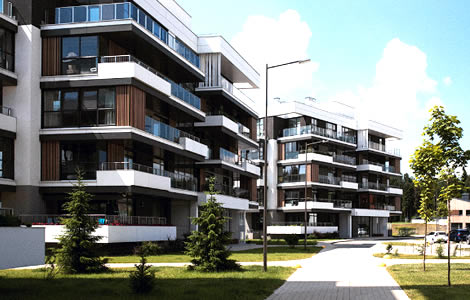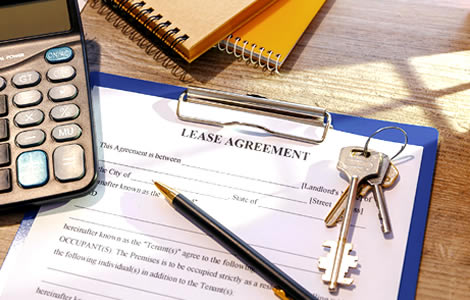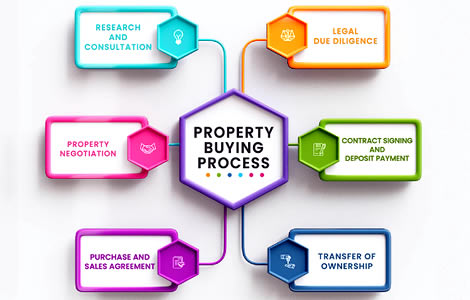A quick step-by-step guide into the dos and don’ts of property ownership in Thailand for foreigners prepared by your friends at Siam Legal so you can learn the basics from the experts.
Thailand is an exciting place to live for many reasons. Whether it’s the country’s beautiful weather, relaxing atmosphere, or friendly population, large numbers of foreigners each year buy properties here. However, the kingdom’s strict property ownership laws must be considered so that your investment is, at all times, fully protected.

Whether you’re planning on investing or settling down here in the Land of Smiles, you’ll need a guide on how to buy property in Thailand.
Local laws restrict foreigners from owning most kinds of property solely under their name, but there are ways around this. Here we will detail everything you need to know from picking which property to buy to the step-by-step process you’ll need to follow.
Choosing The Right Way to Own Property in Thailand
There are two main pathways for you as a foreign national to own or effectively own property in your name: condominium units and long-term leasehold.
The laws for buying condominium units and leasing property long-term are different, so it is advised that you seek the assistance of a property lawyer in Thailand to ensure that you fully understand the laws and aren’t at risk of legal trouble or fraud.
Condominium Units – the easiest way for foreigners to own property

As a foreign national, you are permitted to own condominium apartments under the Thai Condominium Act of 1979, provided that you purchase a unit with freehold status outright or sign into a leasehold.
However, you are only allowed to own up to 49% of the total area of a condominium building in Thailand, while the remaining 51% must be owned by Thai nationals. Though control of the remaining 51% can be obtained through a leasehold arrangement.
Below are the advantages of buying a condo in Thailand:
- You are allowed to own a unit in a condominium under your own name and can invest in multiple buildings as long as you are within the foreign ownership quota.
- You are allowed to use condominiums as collateral, as they come with a title deed.
- You have the option to use the property as both a home and as a rental.
- You will have fewer maintenance and repair responsibilities, compared to having full ownership of a building.
Long-Term Lease of Properties – a safe and practical approach

The preferred approach to owning land in Thailand as a foreign national is through a leasehold, also known as a long-term lease of properties.
It is the most secure way to exercise de facto control over a property long-term and gives way to more real estate options to choose from such as villas, houses, townhouses, land, and more.
A leasehold usually comes with a 30-year lease agreement with the landlord or developer, meaning that you will be given full rights and control of the property for 30 years, not including any complications, disputes, or transfers of ownership. The Land Department also recognizes the 30-year lease as a secured right, therefore protecting it from any landlord or building owner attempting to disrupt or terminate your rightful use of the property.
The 30-year lease agreement can be renewed twice, totalling a 90-year lease. However, unlike the initial lease agreement where the first 30 years is a guaranteed right ensured by the Thai government, both the 30-year renewal lease terms must be mutually accepted by both parties as outlined in a legal agreement. If you are looking to renew your first 30-year period, it is advised that you seek the aid of a lawyer to ensure that your lease agreement rights remain the same.
The advantages of buying a leasehold property in Thailand include:
- Many more property types to choose from
- Complete control over maintenance activities and, if agreed upon with the lessor, freedom to modify the property
- Higher potential for a favourable return on investment (ROI) and lease agreement extension opportunities in the future
It is important to note that any building a tenant constructs on leased land may be viewed as a separate entity and will be owned by them.
Property-Buying Process

Due to the legally complex nature of buying property in Thailand, there are several recommended steps you should take in addition to the standard buying process before signing on the dotted line:
- Research and Consultation: First decide on what kind of property you want to buy, the amount you’re willing to spend, and the location you want to buy in Thailand. Afterwards, you’ll need to work with a trustworthy local real estate agent with extensive knowledge of the area to help you make an informed decision and guide you through the purchasing process.
- Legal Due Diligence: Hire the services of a property lawyer to conduct thorough legal due diligence, which will include a Thai property title search to confirm there are no outstanding debts or mortgages and that all the permits are in place. This step is key to preventing unscrupulous sellers from defrauding you.
- Property Negotiation: Work with a real estate agent to negotiate the purchase price, as negotiations are possible in Thailand, but it is crucial to consider cultural norms and market conditions.
- Contract Signing And Deposit Payment: Secure the property by signing a reservation agreement and paying the non-refundable reservation fee, which usually amounts to 5-10% of the purchase price.
- Purchase and Sales Agreement: Draft and sign a sales agreement outlining the terms and conditions of the sale with a comprehensive description of all the agreed-upon details. Have your property lawyer make sure everything is in order and that the deal is fair with a contract review of your Purchase and Sales Agreement.
- Transfer Of Ownership: Pay the remaining balance and transfer property ownership in person at the Land Department. Your lawyer will help you with all the paperwork, including fund transfer and getting the title deed registered in your name. Any ongoing maintenance or management of the property will also become your responsibility, so it is recommended that you consider working with a property management company if you are not frequently present at the property.
Get In Touch With Siam Legal

As a full-service law firm with more than 20 years of expertise in helping customers from all over the world with their legal needs, Siam Legal has a team of experts who will make sure that your experience in buying property in Thailand is as smooth and risk-free as possible.
We will aid you through the entire property-buying process, from thoroughly investigating your selected property’s history to reviewing every word in your lease agreement so you don’t run into problems with the government or dishonest landlords.
Contact Siam Legal to get started on your purchase journey right away:
- Name: Siam Legal International (Bangkok Office)
- Address: Two Pacific Place 18th Floor Unit 1806, 142 Sukhumvit Road, Khlong Toei, Bangkok 10110, Thailand
- Phone: +66 80-005-9642
- Email: info@siam-legal.com
Contact Property Team: Click here to contact the Siam Legal Team




















